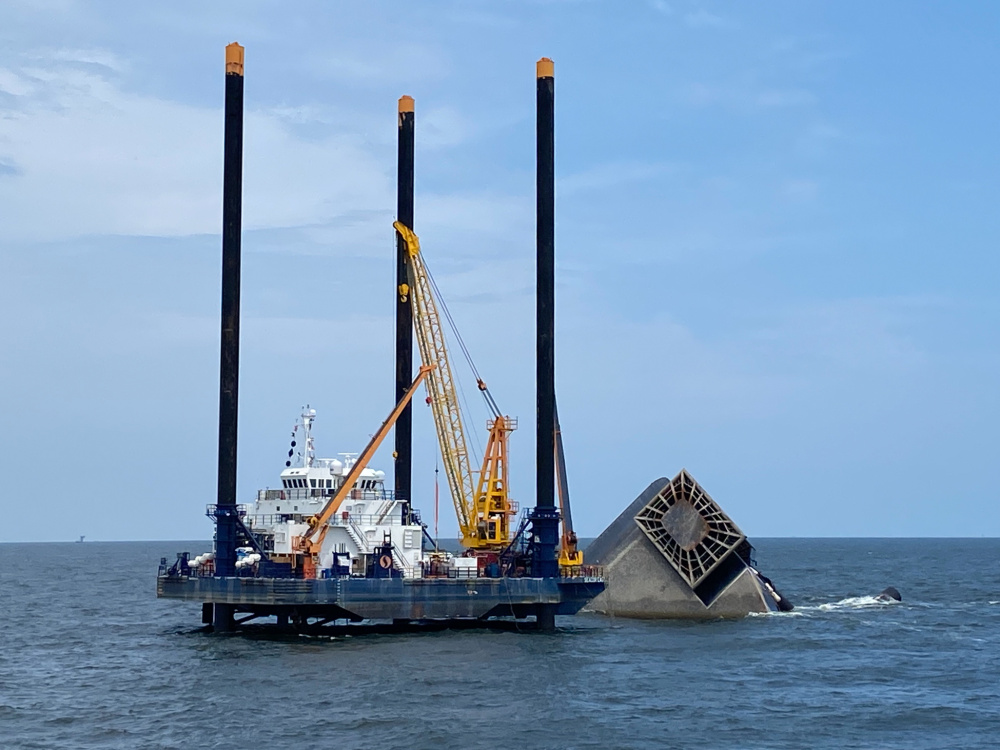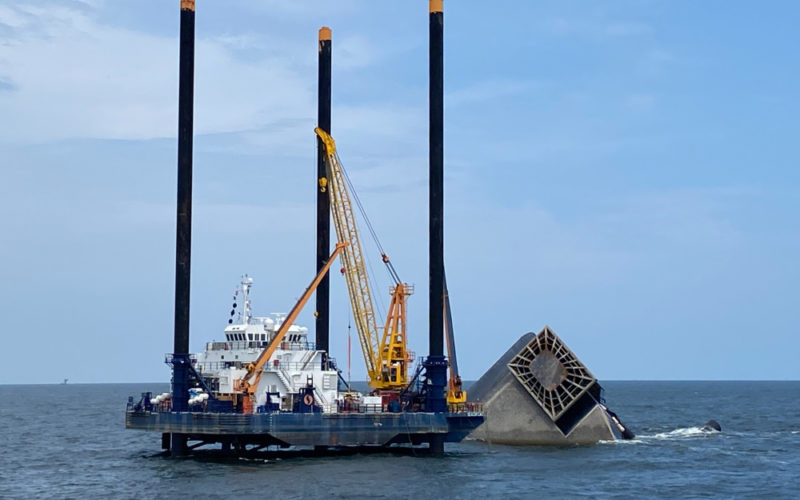(HOUMA, La.) — The unified command consisting of the Coast Guard and SEACOR updated family members of the crew on the status of salvage operations of SEACOR Power during a meeting in Houma on Wednesday.
Family members were provided with information from SEACOR and the contracted Donjon-SMIT salvage team on efforts to remove the vessel and what the potential timeline for that process is expected to be. The liftboat sank in a storm on April 13 near Port Fourchon, La., resulting in 13 deaths.
Throughout the last week, contracted salvage crews have been removing obstructions from the seafloor around the partially sunken liftboat. Removal of the debris will make room for the equipment needed to raise vessel sections to the surface.
SEACOR Power remains in the same location where it sank but has rotated, and salvors report cracking and separation of the hull from the superstructure. The separation indicates that the structural integrity of the vessel is compromised. As a result, the vessel will have to be raised to the surface and brought to shore in separate sections.

The Donjon-SMIT salvage team is outfitting a barge with a pump system that allows it to be submerged and maneuvered under the larger sections of the vessel. Once in place, water is pumped out of the barge and it is refloated with the larger sections already on board in conjunction with assistance from a crane barge on the surface. This method preserves the structural integrity of the recovered section.
Safety netting will be placed around the openings of each section as it is raised and transported.
Removal of the largest sections is expected to be complete by the end of June, but the timeline depends on many factors including the safety of salvage crews, the weather, and any new structural changes that may occur. SEACOR assets will remain in the area until the end of July to recover any remaining debris from the sea floor.
The Coast Guard safety zone extending 1 nautical mile around the site and the Federal Aviation Administration temporary flight restriction covering a 5-nautical-mile radius around the site and 2,000-foot minimum altitude will remain in place until salvage operations are complete. These restrictions are in place to ensure the safety of divers and salvage crews working at the site as well as boaters who could place themselves in danger by transiting through an active work site where debris and other underwater obstructions such as anchor wires, mooring ropes and navigational buoys may be present.
The Coast Guard continues to monitor for any oil discharges, and SEACOR Marine has an oil spill response organization standing by to respond to any situation in which there is recoverable oil.
The incident is under investigation by the National Transportation Safety Board and the Coast Guard.
– U.S. Coast Guard

